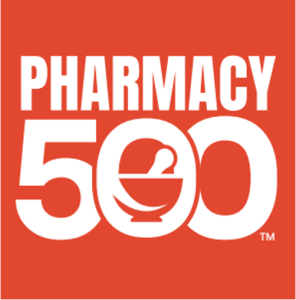Compliance 101: Why You Should Commit to it and What Can Happen if You Don’t
A “culture of compliance” is a phrase thrown around pretty frequently by independent pharmacists—and for good reason. Ethically speaking, patient safety should always be the priority, and a steadfast commitment to compliance ensures that both patients and paperwork receive the proper care. But in pharmacies where there’s a constant bandwidth battle related to time and resources—which is most of them—cutting a corner here or there can have serious consequences. If “culture of compliance” is just something you say and not something you do, it’s time for your pharmacy to realign its focus.
What it means to have a culture of compliance
If compliance was as easy as dosing the right medication to the right patient, the practice would induce a lot less anxiety for pharmacists. Unfortunately, there are several different areas with the undertaking of compliance that all require attention. As an independent pharmacist, the three topics below shouldn’t come as a surprise to you, but our hope is that this serves as a reminder of how important each is to your business.
-HIPAA
Perhaps the most well-known—and the one that generates the bulk of a pharmacy staff’s time—is complying with the Health Insurance Portability and Accountability Act, or HIPAA, as it’s commonly known. Given the complexities and layers involved in HIPAA, it could probably have its own post about compliance. But in order to keep it brief, we’ll just hit on the most salient points.
Pharmacies must shield protected health information (PHI) at all times, which includes solely using that information for the right reasons (treatment purposes, requesting or receiving payment, and pharmacy operations). Of equal importance, pharmacy staff must dispose of PHI properly by shredding, pulverizing or incinerating labels and documents.
-Fraud, waste, and abuse
Fraud, waste, and abuse costs the U.S. health care system hundreds of billions of dollars each year. According to Heidi Lew, Pharm.D., and the Vice President of Pharmacy Network Audit at OptumRX, the bulk of those errors are from things like forged prescriptions, duplicate claims, data entry errors and intentional overcharging. An unwavering pledge to compliance means enacting and abiding by a fraud, waste and abuse policy. We’ll talk later about what can happen to you if an auditor from OptumRX, one of the country’s largest pharmacy benefit managers (PBMs), finds a lack of documentation to support a substantial swing in the business.
-National exclusion database monitoring
Dedicated compliance isn’t just about the patient; it’s also about the employees working for you. If you’re a pharmacy that receives public funds, either Medicaid or Medicare, you absolutely must be checking exclusion databases at least once a month. These resources provided by the Office of Inspector General (OIG) and System for Award Management (SAMS) list the offenders banned from working in federal health care programs. These are people convicted of an egregious crime involving illicit use or the sale of drugs—and they’re certainly not someone you want working in your pharmacy.
Another sometimes overlooked, yet imperative function for pharmacy owners is to immediately have all employees complete your compliance training upon hire. From the markerer, out in the community functioning as a liaison to physicians, to the front end clerk, they need the same company training and documentation as your technicians and pharmacists receive. This means annual HIPAA and FWA training and monthly OIG checks for everyone working in any capacity for your company.
What can happen without a culture of compliance
The inherent risk with a lackadaisical attitude to compliance is that you’re putting patients’ health in danger. You can imagine what might happen if a pharmacy dispensed the wrong medication, strength or dosing information to a patient. But beyond just the patient’s wellbeing, you could also be putting the health of your business in jeopardy. One of the ways to ensure you’re doing the right thing is by securing drugs from a wholesaler that carries a similar mindset about compliance. Remember OptumRX, the PBM we talked about earlier?
They only work with wholesalers that are have gone through accreditation, which speaks to the wholesaler’s stringent standard operating procedures. As a pharmacist, you must look for wholesalers who have undergone the application process and met the rigorous standards needed for accreditation because this makes your job easier and your patients safer. You should also be aware of what can happen to the business in the event your processes don’t meet regulatory standards. For one, you could be on the hook for hefty fines and even jail time.
In the event your pharmacy receives an audit from someone like OptumRX, the auditor could ask you to pull files and documentation for patients from as far back as 10 years ago. If the PBM’s findings uncover crooked practices, that evidence is immediately shared with authorities. In addition, the PBM can remove the pharmacy from its network, terminating the contract and setting off a series of clawbacks in which money you received is returned to the customer. As a result of this change in status, the pharmacy will no longer be able to process claims for any patient through that PBM.
The good news is pharmacies can avoid these headaches with discipline and a pledge to make compliance a priority. Pharmacists can also help their own cause by partnering with a wholesaler like Mockingbird Pharma, which is accredited by the National Coalition for Drug Quality & Security. With a dedicated compliance team that ensures proper chain of command through e-pedigrees on products, Mockingbird Pharma’s products are all vetted appropriately, allowing pharmacists to trust the shipments they receive.
ATRIUM24 is proud to partner with Mockingbird Pharma to enhance the business of the independent pharmacy. Contact us today to learn more about our partnership and how we can help your pharmacy grow compliantly.







